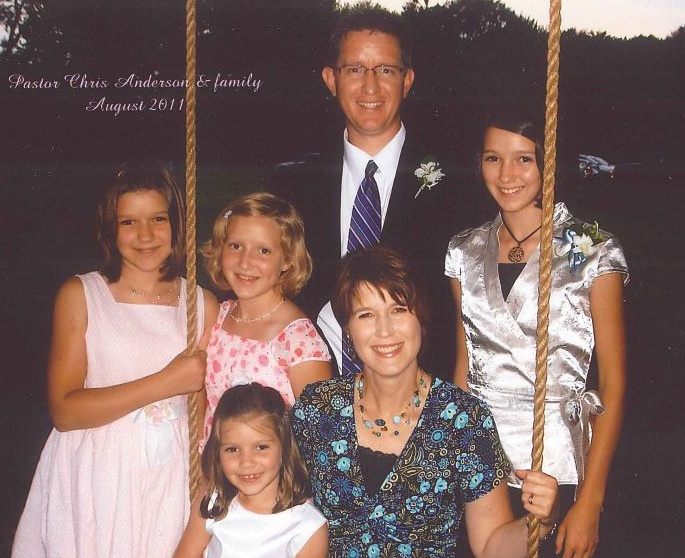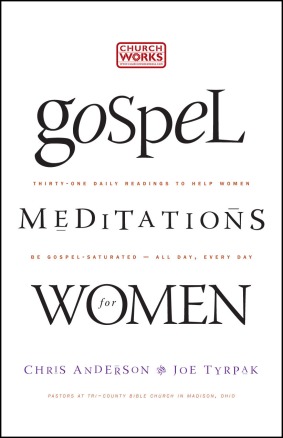I’ve profited much from reading Mark Dever’s practical book, The Deliberate Church. He has some helpful things to say about corporate worship, especially congregational singing.
Why Dever loves congregational singing:
“Singing the gospel together, as a whole church, forges unity around distinctively Christian doctrine and practice. Our congregational songs function like devotional creeds. They give us language and opportunity to mutually encourage each other in the Word and call each other out to praise our common Savior. One of the most important functions of congregational singing is that it highlights the corporate nature of the church and the mutual ministry that builds us up in unity. One reason we come together on Sundays is to remind ourselves that we are not alone in our confession of Jesus Christ and our conviction of the spiritual truths we hold so dearly. What a blessing it is to hear the whole church singing together with all our hearts! When we hear one another singing the same words all together, there is both a common melody and a diverse harmony that expresses the unity and diversity of the local church body in a way that encourages us to press on together. In our overly individualized culture, congregational singing is one of the most visible ways to encourage a specifically corporate emphasis to our worship and life as a local church body.” (116)
“Congregational singing…is true to both the corporate and participatory aspects of our regular corporate worship.” (117)
Why Dever minimizes special music:
“A steady diet of performances by soloists or even choirs can have the unintended effect of undermining the corporate, participative nature of our musical worship. People can gradually come to think of worship in terms of passive observation, which we do not see modeled in the Bible. Such a diet may also begin to blur the line between worship and entertainment, especially in a television-sopped culture like ours, where one of our most insidious expectations is to be always entertained.” (117)
What do you think? Does prepared music always lead to a de-emphasis of corporate worship? Does it unintentionally communicate the idea that worship is a “spectator” event, or that only those who are particularly gifted need worship in song? If prepared music is used, what can be done to make sure that it contributes to corporate, participatory worship rather than competing with it? What can be done to highlight the importance of congregational singing?
Looking forward to your thoughts!
Filed under: Book Reviews & Discussions, Notable Quotes, Worship |










1. Prepared music (a far better term than “special” music) can often lead towards a performance oriented service, and it often does. Congregational singing is far more important.
2. Prepared music does not have to lead to performance oriented services. Things can be done to prohibit it, in fact, like encouraging the congregation to follow along with the words for instrumental numbers (either in their hymnal, in a bulletin, or on overheads). Prepared music that are arrangements of what the congregation already sings should be encouraged. Highly virtuosic, “showmanship” pieces should be avoided, especially those that are “immodest” in that they draw attention to the compositional elements instead of the overall affective message. Most modern “arrangements” are nothing more than a hymn melody with some doodles added to make them interesting. These are unhelpful to congregational worship.
3. Prepared music can actually help congregational worship in ways that congregational singing alone cannot. A gifted musician can communicate messages to help the congregation know how they should be responding with their affections to biblical truth. In this way, the “worship leader” is teaching the congregation how to “feel.” This way of instruction is very important and should be viewed with the same level of weight as teaching with words.
Hey, Scott. Thanks for posting.
1. I agree.
2. I agree. And I appreciate the idea of posting lyrics. I suggest that it would be a great thing to do even for vocal songs. Sure, the choir or soloist should communicate clearly enough that it’s not necessary, but they often don’t. And both reading and hearing the message of the song can only be a good thing. As for nipping showmanship in the bud, that must take a pretty aggressive & tactful leader, but I agree. Also, getting people to forget themselves is important…don’t roll your eyes if you make a mistake, etc. It’s not about you.
3. I agree. I think it’s a challenge to accomplish what you’re describing, though. Some more ideas:
* It is my opinion that every worship service–certainly every Sunday morning service–should have a theme. When hymns are chosen haphazardly, without any connection to one another, I think it is ineffective. Starting by choosing a theme for songs & Scripture reading–whether redemption, God the Father, Christ’s blood, Creation, etc.–would be a great start for most churches. But making the prepared music fit the same theme would do wonders as well! Why not address God’s Fatherly Care in congregational song & with Scripture reading, then have the choir sing “Almighty Father” (for example)? The answer? Preparation. FWIW, we’re preparing to have more prepared numbers, but if they don’t further the direction of the service, I’m not interested.
* Another option is to have the choir lead the congregation. Two of te songs Dr. Gus led at the recent combined service here included having the congregation sing. We did that often at BJ, generally with brass choir, tempani, etc. I’ll never forget that. It not only included the entire congregation, but allowed a worship more glorious than congregational singing alone. I know isn’t the purpose of such singing, but there were times when I was so overwhelmed, I couldn’t even sing. Glorious.
* Finally, why not have the choir sing a hymn that you are introducing as a hymn of the month? We love “Before the Throne of God Above,” and we sing it often congregationally, but we sang it first as a choir. The same is true of “Arise My Soul, Arise,” which was first sung at TCBC by our teen choir, following which we had the congregation join us.
Some ideas, anyway.
Prepared music certainly can lend itself to a performance atmosphere. However, it doesn’t have to. Much like Scott mentioned above, care should be taken that the musicians select music that is well-written, but not overarranged only to show off the skill of the musician.
Another thing that can be of help is to connect the prepared music with the overall flow of the service. Ways to do that include Scripture readings, hymns, general comments from the “worship leader” etc. that both prepare the worshipper for the prepared music as well as allow the worshipper to respond appropriately to the message that they just heard from the choir/soloist/etc.
I did something like this just this past Sunday night. My choir sang Craig Ralston’s “I Need Thee Precious Jesus” which I followed up with the congregation singing “Before the Throne of God Above.” In between the songs I made a comment like, “While we have just been reminded of our utter need of Jesus Christ, we can take confidence that He is meeting our deepest needs as He stands before the throne of God above, where He ever lives to make intercession for us.”
What needs to be avoided is having prepared music just to have prepared music.
Chris,
Was typing while you posted your comment…
I agree that having a theme can be a good thing in order to give purpose to the worship service. However, I believe that beyond that, if the congregational songs, Scripture readings, and any prepared music have a progression that allows for truth to be communicated and proper response to be made by the congregation, that is superior. Once again, though, that takes careful thought and preparation. It doesn’t happen in 15 minutes on Sunday morning!
Scott Aniol provides helpful suggestions here and here.
I agree with Dever … rarely find a reason not to!!
I am enjoying this discussion. One thing that I have thought often about with this regard is that worship cannot just happen on Sundays. Our people need to be trained that unless worship is happening on a private level during the week, they will have a most difficult time worshipping on Sunday publicly. Dr. Whitcomb in his book, “True Worship” brought this truth out as have other good men.
I like the ideas expressed here…the challenge is actually doing things like this to make our “worship” services worshipful and not just ritual.
Chris wrote:
“It is my opinion that every worship service–certainly every Sunday morning service–should have a theme.”
Does the sermon dictate this, to some degree?
And while I don’t disagree with Scott and Chris in theory, I wonder if the prevailing culture in both secular and religious America doesn’t warrant a lengthy fast from any form of music in the church that in any way purveys the performance mentality.
Taigen, I remember you. You probably don’t remember me. Great to hear you’re alive and well.
Chris, good additional suggestion. Our church does them all, although instead of having a particular theme in a service, we have a more liturgical structure into which certain elements (hymns, readings, prepared music) fit based upon their content.
Ben, your fasting suggestion is good, I think. I am doing some of that in our church. For instance, we never have a prepared number during our offering. Performance mentality has stripped us of any knowledge of what we are supposed to be thinking during the offering. Rather, the organ plays a simply hymn of consecration or thanks straight from the hymnal, the congregation is encouraged to open the hymnal and read the text, and the ushers don’t even start taking the offering until the second stanza.
While I agree that a total prepared music fast might be helpful in some respects, I truly believe that the benefits of a gifted musician presenting a musical offering to the Lord in the presence of others, leading them to do the same, and teaching their affections outweight the possibility of performance mentality. Plus I’ve taught so much on it, and will continue to do so, that our people have been slowly weaned away from it, although it is still there at times!
Ben,
The theme of the sermon often dictates the theme of the worship service, but not always. Since we are preaching through Matthew on Sunday AM, there are a lot of themes that might not come up for quite some time (e.g. God as Creator). So we sometimes have a theme for the Scripture reading, prayer of adoration and songs that is distinct from the sermon. That said, this week I preached on the parable of the wedding feast from Matthew 22:1-14. We intentionally backloaded the service, singing appropriate hymns following the message (His Robes for Mine, which focuses on Christ’s imputed righteousness, and How Sweet and Awesom, which focuses on our participation in the banquet of salvation).
As for keeping the entire service participatory, we’ve been very blessed by having a corporate prayer of adoration, as well. We have a time when several people from the body can offer a sentence or two of praise (extemporaneously), generally focused on the theme of the morning as a response to Scripture. We did that Sunday between the songs at the end of the service & it was a great blessing. The same can sometimes be done with Scripture reading (responsive, etc.).
Though we’ve survived–well–without many “specials,” I do think they can be useful, as mentioned above. To forbid them entirely might require a similar ban on public Scripture reading by one man, public prayer by one man, etc. I think people must learn that the person praying is leading in prayer, not praying while they idly listen. The same thing can and should be taught with music, IMO.
Chris, I just experienced a Presbyterian funeral during which the pastor had us read a Prayer of confession and then announced that we were all forgiven. So, my experience with the “corporate” prayers is not good. Is your corporate prayer the extermporaneous one you explained or one that is read?
Chris wrote:
“To forbid them entirely might require a similar ban on public Scripture reading by one man, public prayer by one man, etc.”
I wouldn’t suggest that special/prepared music be forbidden, just that I might not incorporate it into the service. (Maybe along the lines of what Paul taught about tongues. ;-))
By corporate prayer of adoration, I mean that we have a time in the service when say 4-10 individuals from the congregation can offer a short prayer of thanksgiving or praise that is not scripted in the sense that they have been asked to do so before the service.
Andy, please allow me a little leeway. Say I were to come to you or Chris after God had convicted me of a certain sin, had repented of it, made it right with whomever I had wronged, and yet was still disturbed by having committed it, convinced I had committed the ultimate sin condemming me to judgment. You, as the minister of God, query me as to my standing with God re Jesus Christ and salvation, are convinced that I was truly a child of God by the blood of Christ, what counsel would you give re my hanging on to my guilt for sin that had been forgiven? You would say something along the lines of what the Presby minister probably said “Upon your confession, I, as a called servant of the Lord, announce the forgiveness of God unto you, in the name of the Father, Son, and Holy Spirit”. At least you would be able to reassure me my sin was forgiven.
I know, it sounds very romanish, but is this not godly counsel? The minister himself does not do the forgiving, he announces that sin is truly forgiven when confessed to God with humility and repentance. It goes for individual as well as corporate sin as a reminder of our need for continuous forgiveness of sin.
In liturgical churches, it is not uncommon to confess sin publicly in a corporate manner by use of a common confessional prayer (as an acknowledgement of sin in need of confession and repentance). If one is truly repentant of sin, and has confessed to God for forgiveness, sometimes it gives comfort to recieve reassurance from the minister of God we are in reality truly forgiven.
Dale,
I can see the blessing of being assured of forgiveness of sin on an individual basis. But when it was offered to the entire congregation without knowing their spiritual condition or having been convinced that there was any repentance. My problem in my situation was that he offered forgiveness without explaining where it came from. It was like saying, repeat this prayer after me and you will be saved. IMO, that probably misleads alot of people who are trusting in an action instead of the person and finished work of the Lord Jesus Christ.
Even on an individual basis, the line “Upon your confession, I, as a called servant of the Lord, announce the forgiveness of God unto you, in the name of the Father, Son, and Holy Spirit” has no backing in Scripture. My calling as a servant of the Lord has nothing to do with your forgiveness or assurance of it, and I have no business announcing it unto you. I think to do so can be quite harmful, in fact, since I can’t know your heart and since your assurance should come from Scripture, not me. Would I point you to Scriptures where God assures you of forgiveness for confessed sin? Sure. But I have no biblical basis to give the kind of assurance the statement I quoted suggests.
I can’t get into a protracted conversation on this, so I won’t plan to comment on it again. In fact, since it’s really off-topic anyway, I’ll ask that we not pursue it further here. But I do want to be clear on this important matter.